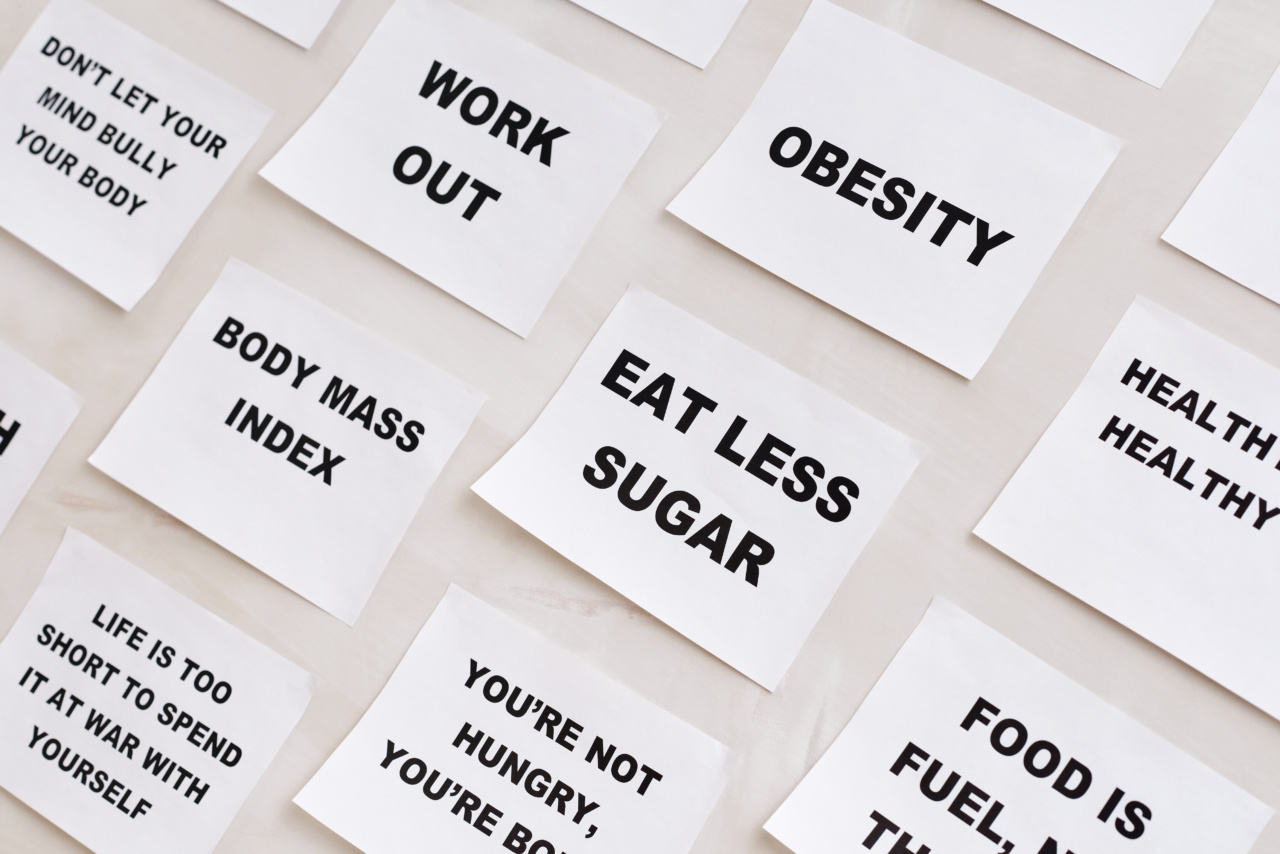Many people struggle to lose weight, despite trying countless diets and exercise routines. However, one important factor that is often overlooked is the role of eating habits in weight loss.
By making small changes to your eating habits, you can see improvements in your weight loss journey. In this article, we’ll explore some effective strategies for changing your eating habits to lose weight.
1. Start Tracking Your Food Intake
Keeping track of what you eat is an important first step in changing your eating habits. By tracking your food intake, you can identify areas where you may be overeating or consuming too many unhealthy foods.
You can use a food journal or an app to track your food intake.
When tracking your food intake, pay attention to the serving sizes and the nutritional content of the foods you eat. This can help you make informed choices about what to eat and how much to eat.
2. Focus on Whole, Nutrient-Dense Foods
One of the best ways to change your eating habits is to focus on eating whole, nutrient-dense foods. These include fruits, vegetables, whole grains, lean proteins, and healthy fats.
These foods are high in nutrients and fiber, which can help keep you feeling full and satisfied.
Avoid processed foods, sugary drinks, and foods that are high in saturated and trans fats. These foods are often high in calories and offer little nutritional value.
3. Practice Mindful Eating
Mindful eating is about being present and aware while you eat. It involves paying attention to your body’s hunger and fullness cues, as well as the taste, texture, and smell of the food you are eating.
By practicing mindful eating, you can avoid overeating and make more conscious choices about what you eat. To practice mindful eating, try turning off all distractions (such as the TV or phone) while you eat, and take the time to savor each bite.
4. Plan your Meals in Advance
One of the biggest challenges of changing your eating habits is finding healthy, nutritious meals that are both satisfying and easy to prepare. By planning your meals in advance, you can save time and make healthier choices.
When planning your meals, focus on incorporating a variety of whole, nutrient-dense foods. Try meal prepping, where you prepare a batch of meals for the week ahead. This can also help you save money and reduce food waste.
5. Eat Regularly Throughout the Day
Eating regular meals throughout the day can help keep your blood sugar levels stable and prevent cravings and overeating. Try to eat three meals per day, with one or two snacks in between.
When snacking, choose healthy options like fruits, vegetables, or nuts. Avoid sugary, processed snacks that offer little nutritional value.
6. Drink Plenty of Water
Drinking plenty of water is important for weight loss and overall health. Water can help you feel full and satisfied, and can also support digestion and metabolism.
Try to drink at least eight glasses of water per day. You can also try drinking herbal tea or fruit-infused water for a change of pace.
7. Practice Moderation, Not Deprivation
When trying to lose weight, it’s important to remember that moderation is key. Rather than completely cutting out your favorite foods, try to find a balance between healthy, nutritious foods and the occasional treat.
By practicing moderation instead of deprivation, you can avoid feelings of guilt or restriction and make long-term changes to your eating habits.
8. Seek Support from Others
Changing your eating habits can be challenging, and it’s important to seek support from friends, family, or a professional if you need it. A registered dietitian can help you develop a personalized plan for healthy eating and weight loss.
You can also join a support group or online community for weight loss and healthy eating. These groups can provide motivation, encouragement, and accountability.
9. Don’t Be Too Hard on Yourself
Finally, it’s important to remember not to be too hard on yourself. Changing your eating habits and losing weight takes time and effort, and there will likely be bumps along the way.
If you slip up or have a bad day, don’t let it derail your progress. Instead, focus on making healthier choices in the future and moving forward.
Conclusion
Changing your eating habits is an important part of any weight loss journey.
By focusing on whole, nutrient-dense foods, practicing mindful eating, and seeking support when needed, you can make lasting changes to your eating habits and achieve your weight loss goals.



























